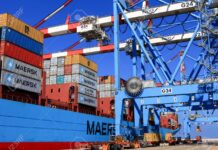Despite the fact that the Brexit referendum occurred almost four years ago, the exact ramifications of the decision are still unknown. The United Kingdom has officially left the bloc, but there is still no final trade deal in place – meaning that the possibility of a “hard Brexit” has not yet been officially averted. And there’s still no final consensus on the future of the Europe-UK shared labour market, either. If you’re a business leader with a presence in Europe, then, read on to discover how Brexit might affect you – and how you can deal with these potential threats.
Goods over borders
Perhaps the most worrying aspect of the whole Brexit question for those businesspeople with a presence in Europe is whether or not Brexit could cause the supply of goods and services into the UK to be disrupted. It’s far from out of the question that this could happen. Currently, goods can move over borders within the European bloc in a relatively frictionless manner. But if border checks are introduced due to a potential future lack of regulatory alignment, that can all change – and it could mean disruption to your supply chain. Recently, some politicians have taken steps to reassure businesspeople that post-Brexit trade – either with Europe or the world – will be fine. But as anyone who has ever dealt with major political or regulatory changes in the past will know, the promises of politicians are not always kept.
Staff and the labour market
Currently, workers in the UK are able to travel abroad to Europe without restriction, and vice versa – meaning that some of your staff could well be from Europe. It’s understandable that you might now be concerned about what will happen to them once Brexit happens. It’s worth encouraging them to apply for settled status, so that there is less chance of them having to return home.
Currency conversions
The above two potential problems are direct consequences of Brexit. But there are also some potential indirect consequences. One of those is the effect on the value of the British pound. If you’ve expanded into Europe, it’s likely that you’ll have a business bank account which contains cash in euros. Converting it back into pounds requires some strategic thinking, as if the pound is in a disadvantaged position in its pair with the euro, then you could end up reducing the financial value of your profits. It’s a good idea to get a decent forex broker on side to ensure that you’re paying as little as possible in fees, and reading a review of AvaTrade could be what you need to do.
Having expanded into Europe, it’s understandable that the remaining year or so of Brexit transition talks could be nerve-wracking. But by taking steps to deal with the big issues, such as the flow of goods or the status of your workers, you can reduce the risk that Brexit will hit your firm hard once a final trade deal has been struck.









































